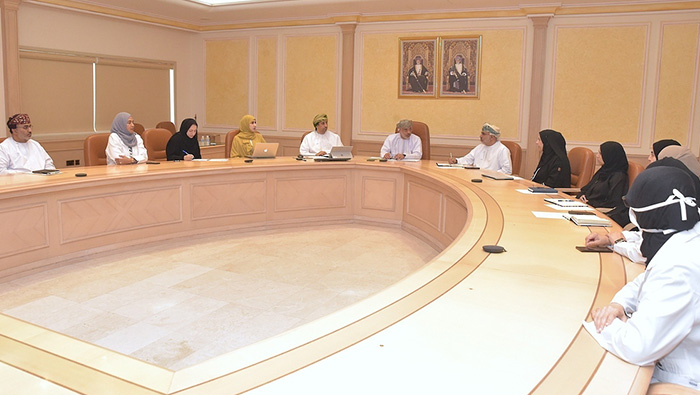
Muscat: In preparation for entering a new expanded phase of newborn screening for metabolic disorders and premarital screening for certain hereditary blood disorders and infectious diseases, Dr. Said Harib Al Lamki, Undersecretary of the Ministry of Health (MOH) for Health Affairs, chaired a meeting on Wednesday with the team responsible for monitoring the implementation of this initiative.
The national initiative, which will be implemented by the Ministry of Health in January 2025, reflects the Sultanate of Oman’s commitment to raising healthier and more resilient generations.
During the meeting, Al Lamki affirmed that the expansion of services for the target groups aims to assist community members, particularly those planning to marry, in forming healthy and stable families and raising healthy children.
He underscored the importance of promoting awareness among the target groups, ensuring that both couples fully understand and are convinced that marriage should only proceed after undergoing medical tests, being fully informed of the results, and providing proof of having completed these tests.
He also highlighted that the newborn screening service will make a significant difference in the future of families, allowing for early treatment or interventions if the test results reveal any genetic disorders.
The undersecretary pointed out that this initiative, expected to be officially launched in January 2025, offers a package of tests targeting individuals planning to marry. These tests aim to determine whether either partner is affected by or carries certain hereditary or infectious blood disorders. The initiative provides couples with options and alternatives, enabling them to make informed and appropriate decisions.
Regarding the importance of this screening, Al Lamki stated that it helps prevent children from suffering from hereditary diseases and reduces the transmission of certain hereditary and infectious blood disorders. This contributes to minimising many psychological, social, and economic challenges faced by families with children affected by such conditions.
The national programme for early newborn screening also aims to detect any genetic disorders that may cause serious complications. The programme focuses on conducting newborn screenings as early as possible to prevent disease-related complications and to reduce rates of morbidity, disability, and mortality resulting from genetic disorders.